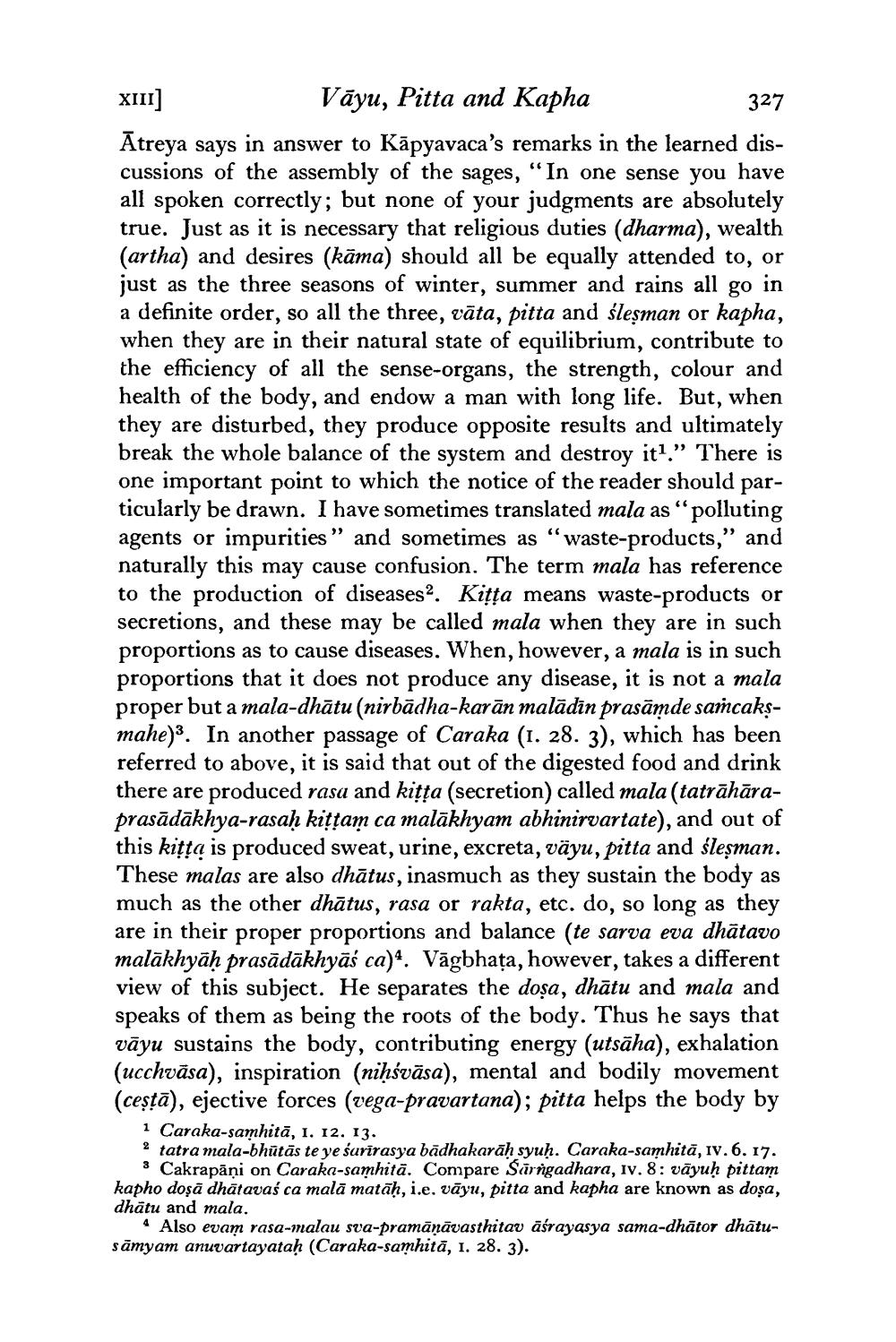________________
XIII) Vāyu, Pitta and Kapha
327 Ātreya says in answer to Kāpyavaca's remarks in the learned discussions of the assembly of the sages, “In one sense you have all spoken correctly; but none of your judgments are absolutely true. Just as it is necessary that religious duties (dharma), wealth (artha) and desires (kāma) should all be equally attended to, or just as the three seasons of winter, summer and rains all go in a definite order, so all the three, vāta, pitta and śleşman or kapha, when they are in their natural state of equilibrium, contribute to the efficiency of all the sense-organs, the strength, colour and health of the body, and endow a man with long life. But, when they are disturbed, they produce opposite results and ultimately break the whole balance of the system and destroy it1.” There is one important point to which the notice of the reader should particularly be drawn. I have sometimes translated mala as "polluting agents or impurities” and sometimes as “waste-products," and naturally this may cause confusion. The term mala has reference to the production of diseases. Kițța means waste-products or secretions, and these may be called mala when they are in such proportions as to cause diseases. When, however, a mala is in such proportions that it does not produce any disease, it is not a mala proper but a mala-dhātu (nirbādha-karān malādīn prasāmde samcaksmahe). In another passage of Caraka (1. 28. 3), which has been referred to above, it is said that out of the digested food and drink there are produced rasa and kițța (secretion) called mala (tatrāhāraprasādākhya-rasaḥ kițțam ca malākhyam abhinirvartate), and out of this kițța is produced sweat, urine, excreta, väyu, pitta and śleşman. These malas are also dhātus, inasmuch as they sustain the body as much as the other dhātus, rasa or rakta, etc. do, so long as they are in their proper proportions and balance (te sarva eva dhātavo malākhyāḥ prasādākhyāś ca). Vāgbhața, however, takes a different view of this subject. He separates the doșa, dhātu and mala and speaks of them as being the roots of the body. Thus he says that vāyu sustains the body, contributing energy (utsāha), exhalation (ucchvāsa), inspiration (niḥśvāsa), mental and bodily movement (ceștā), ejective forces (vega-pravartana); pitta helps the body by
1 Caraka-samhitā, 1. 12. 13. 2 tatra mala-bhūtās te ye śarīrasya bādhakarāḥ syuh. Caraka-samhitā, iv. 6. 17.
3 Cakrapāni on Caraka-samhită. Compare Stirngadhara, IV. 8: vāyuh pittam kapho doşă dhātavas ca malā matāh, i.e. vāyu, pitta and kapha are known as dosa, dhātu and mala.
4 Also evam rasa-malau sva-pramāṇāvasthitav āśrayasya sama-dhātor dhātusāmyam anuvartayataḥ (Caraka-samhitā, 1. 28. 3).




